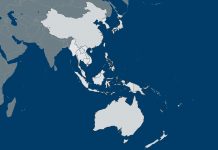By George Friedman
Now that Donald Trump has been president of the United States for a year, I’m struck by how stable U.S. foreign policy has been. Things remain unchanged, for the most part, or are following the path they were when he was elected. His behavior has been extremely disruptive, of course, and the fact that he is disliked around the world creates the impression that U.S. behavior is altogether different. But it isn’t.
Consider U.S. relations with NATO. Trump raised the question of whether NATO was obsolete. The way he raised the question was no doubt abrasive, but considering the alliance is now 65 years old, it’s not a preposterous question to ask. And yet the answer is the same. The U.S. position has not changed. The U.S. is still a full member, and Trump has pledged to honor Article 5, which commits the United States to come to the defense of any member.
U.S. policy toward Russia, for all the vitriol that surrounds it, is remarkably similar to the policies in place before Trump’s election. The United States levied additional sanctions on Russia, which agrees with the U.S. that bilateral relations are the worst they’ve been in decades. (Notably, the sanctions were initiated by Congress but unopposed by Trump.) U.S. interests in Ukraine are largely the same – the promise to send anti-tank missiles to Kiev poses only a modest challenge to Moscow – as are U.S. commitments to the Baltics and Central and Eastern Europe, where troop deployments, rotations and exercises continue to take place.

U.S. President Donald Trump speaks during his address to the nation from Joint Base Myer-Henderson Hall in Arlington, Virginia, on Aug. 21, 2017. NICHOLAS KAMM/AFP/Getty Images
U.S. relations with China are not so different either. The North Korea issue notwithstanding, Washington continues to demand that China change its export and currency policy. In keeping with prior administrations, Trump’s has achieved nothing substantial in this regard, but the perennial face-off with Beijing on economic matters continues unabated. Likewise, in the South China Sea, both countries continue to provoke each other, as evidenced by the deployment of a U.S. destroyer last week, but the game of gestures that has gone on for years goes on.
Then there is NAFTA, which is in the process of being renegotiated. Mexico, Canada and the United States have all declared, at various points, that an agreement is impossible. This is a normal tactic in these kinds of talks. The agreement may collapse. New terms may be negotiated. The negotiations may never end. But NAFTA is still the framework by which North America economic relations are built.
In the Middle East, the policies of the Trump administration – no major commitments – are in keeping with the policies of previous administrations. The Islamic State has been disrupted (but not destroyed) but Trump’s was not the first administration to decide to fight the group. The United States did relocate the U.S. Embassy in Israel to Jerusalem, but it was a purely symbolic gesture that changes little on the ground, and incidentally was mandated by Congress years ago.
The only major difference in Trump foreign policy concerns North Korea. The crisis itself predates Trump by decades. It stems from a policy that held that the U.S. would not allow North Korea to acquire nuclear weapons. Nuclear development surged under the Obama administration and continues under Trump. Like Obama, Trump has declined to go to war, opting instead to find alternate ways to resolve the crisis.
Trump’s rhetoric on the matter has been incongruous with the aggressiveness of his actions. A more tactful translation of his language might have read: “North Korea’s development of an intercontinental ballistic missile able to strike the United States will be viewed in the gravest terms by the United States, and will be met with an appropriate response.” The fact remains that he has pursued a very cautious policy toward North Korea.
This points to something too many observers tend to forget: Over matters of foreign policy for all nations, they take rhetoric a little too seriously. What shapes U.S. policy in Korea has far more to do with the quality of intelligence on nuclear facilities and the placement of artillery along the Demilitarized Zone. What shapes U.S. policy on China has to do more with the supply chain running from China to the United States – and the costs of disrupting that supply chain. A president who ignores recommendations from the military and intelligence organs – and screws up – will have to reckon with a hostile public. A president who severs supply chains – and hurts the bottom line of American business – will have to reckon with a hostile business community. These constraints beget caution.
Trump’s rhetoric is designed to animate his support base. His actions are designed to maintain the status quo. Reasonable people can disagree on whether the status quo is what any president should aspire to. But whatever the expectations for Trump’s foreign policy may have been, the reality is that it has changed very little. It’s a timely reminder that rhetoric and reality are different things.







 The Geopolitics of the American President
The Geopolitics of the American President